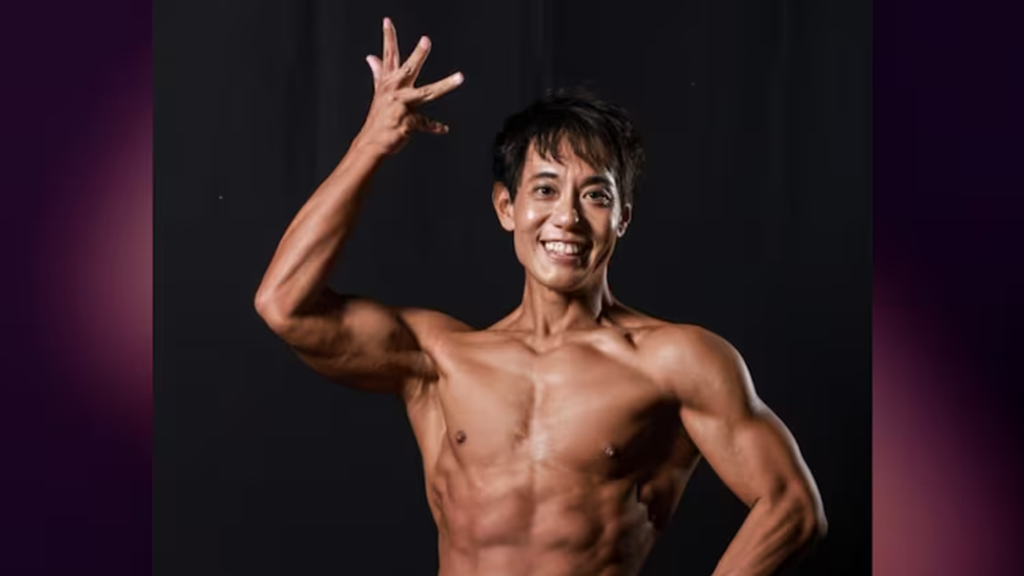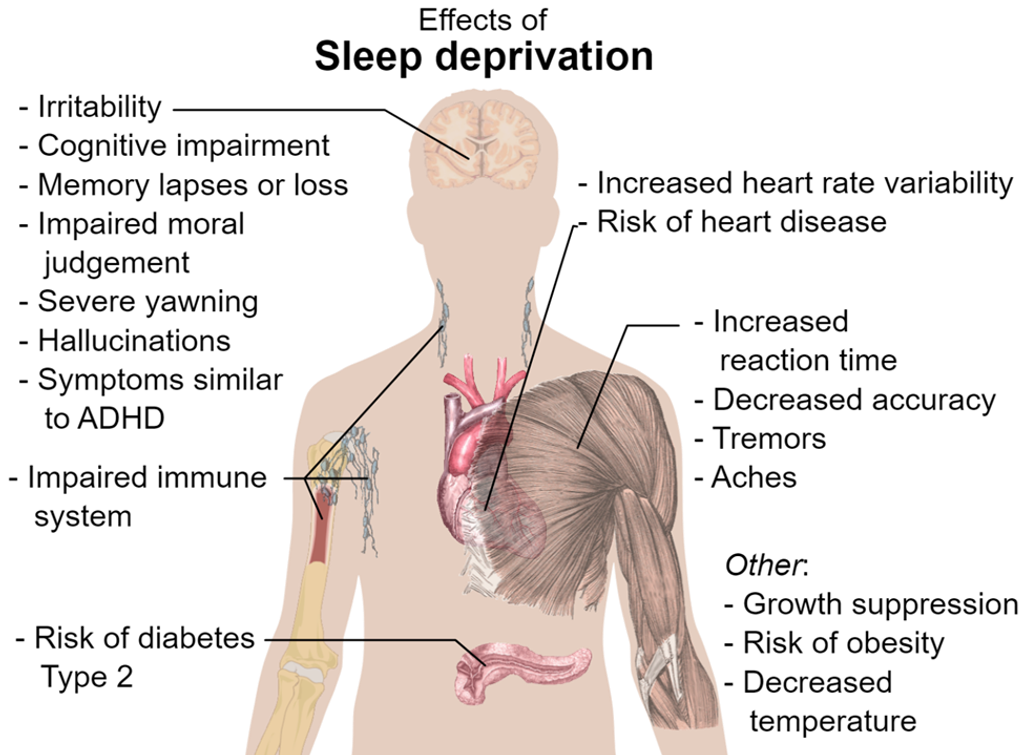Imagine having 23.5 hours a day to conquer your goals, chase your dreams, and live life to the fullest. For Daisuke Hori, a 40-year-old entrepreneur from Hyogo, Japan, this isn’t just a fantasy—it’s his reality. Hori claims he’s been sleeping for just 30 minutes a day for over a decade, and according to him, it’s been a game-changer. While his story has captivated the world, doctors are sounding the alarm, warning that this radical approach could have serious health consequences.
The 30-Minute Sleep Routine: A Life Hack or a Health Hazard?
Hori’s unconventional sleep schedule is a personal challenge and a calculated strategy to “double” his life, as the South China Morning Post reported. Hori believes he’s unlocked the secret to maximizing productivity and achieving peak mental clarity by training his brain and body to function on minimal rest. “As long as you do sports or drink coffee an hour before eating, you can stave off drowsiness,” Hori explains.

© Daisuke Hori, X
Hori argues that the quality of sleep matters more than the duration. He compares high-intensity professions such as doctors and firefighters, who often work long hours with limited rest yet maintain high efficiency. He believes strategic napping and a disciplined routine are the keys to his success.
But is Hori’s 30-minute nap routine sustainable or just a ticking time bomb for his health?
A Peek into Hori’s Life: The Reality of a 30-Minute Sleeper
Japan’s Yomiuri TV recently documented Hori’s lifestyle. The channel followed him for three days to observe his daily routine. One morning, he slept for 26 minutes before springing out of bed, grabbing breakfast, heading to work, and even squeezing in a gym session. Hori’s schedule might seem superhuman to the untrained eye, but he insists that anyone can train themselves to adopt his method.
In 2016, Hori established the Japan Short Sleepers Training Association, where he offers classes to those looking to become ultra-short sleepers. He has taught over 2,100 students to embrace his unique sleep philosophy. One student reported reducing her sleep from eight hours to 90 minutes, a routine she has kept for four years without any adverse effects on her health.
For Hori and his followers, this lifestyle is about more than just getting more done—it’s a testament to what they believe is untapped human potential. But while some see him as a master of time management, critics warn that such a lifestyle is “overdrawing one’s life in advance,” risking irreversible damage to the heart and brain.
What Are the Health Risks of Extreme Sleep Deprivation?
Despite Hori’s claims, the medical community remains deeply concerned. Sleep is not just a passive state—it’s a critical process during which the body repairs itself, consolidates memories, and restores vital functions. Even minor sleep deprivation can lead to short-term issues such as decreased alertness, impaired judgment, mood swings, and memory problems.
 © 2020 Mikael Häggström
© 2020 Mikael Häggström
“Sleep is essential for every organ in the body, including the brain,” notes Dr. Nancy Foldvary-Schaefer, a sleep specialist at the Cleveland Clinic. “During periods of sleeplessness, hidden health hazards accumulate that can’t be covered up with concealer or reversed with caffeine.”
Here’s what happens when you don’t get enough sleep:
- Cognitive Impairment and Mood Disorders: Sleep deprivation impairs cognitive function and increases the risk of depression and anxiety. Research shows that insomnia doubles the risk of depression, with about 80% of people suffering from depression also experiencing chronic insomnia.
- Physical Performance and Safety Risks: Lack of sleep negatively affects coordination and balance, increasing the risk of accidents and injuries. A 2021 study found that sleep deprivation significantly altered gait and balance, making everyday activities more dangerous.
- Weakened Immune System: Sleep plays a critical role in immune function. Chronic sleep deprivation disrupts the production of white blood cells, weakening the body’s defence mechanisms and increasing susceptibility to infections.
- Weight Gain and Metabolic Issues: Sleep deprivation is linked to weight gain and metabolic disorders. Sleep helps regulate hormones like leptin and ghrelin, which control hunger and satiety. Without sufficient sleep, these hormones become imbalanced, leading to increased appetite and reduced ability to lose weight.
- Increased Cardiovascular Risk: Persistent lack of sleep is associated with high blood pressure and a higher risk of heart disease. Sleep deprivation raises cortisol levels, which can contribute to hypertension and other cardiovascular issues.
- Neurological Decline: Chronic sleep deprivation has been linked to long-term neurological disorders such as Alzheimer’s disease. The brain relies on sleep to clear toxic proteins associated with neurodegeneration, and these harmful substances accumulate without adequate rest.
Is Less Really More? The Debate Over Sleep Efficiency vs. Quantity
While Hori’s methods are extreme, they raise an interesting debate about the quality versus quantity of sleep. It’s true that some individuals naturally need less sleep and function well on shorter rest periods. However, experts agree that Hori’s 30-minute sleep schedule is far from ideal and unsustainable for most people.
Dr. Foldvary-Schaefer emphasizes, “While high-quality sleep is crucial, you cannot simply condense all the restorative processes of sleep into a 30-minute window. There’s no shortcut to health when it comes to sleep.”
Sleep deprivation also triggers “microsleeps,” brief, uncontrollable episodes of sleep that can occur even during waking hours. These microsleeps can significantly impair cognitive performance and disrupt the body’s circadian rhythm, leading to long-term health issues.
The Verdict: A Fascinating Experiment with Real Risks
Hori’s story is captivating, and his approach may seem like an enticing way to reclaim hours in the day. However, the potential risks far outweigh the benefits. For doctors, this case is a stark reminder of the importance of balanced sleep for overall health.
Though Hori insists his method has allowed him to live life to the fullest, experts caution against following in his footsteps. While some may thrive on less sleep, extreme deprivation can have severe and irreversible consequences.
In modern medicine, sleep remains one of the most critical yet often overlooked pillars of health. As tempting as it may be to squeeze more out of each day, it’s essential to remember that a good night’s sleep is not just a luxury—it’s a necessity for a long, healthy, and productive life.
Disclaimer: The content provided on this platform is intended for informational purposes only and does not replace professional medical advice, diagnosis, or treatment. Some materials may originate from third-party sources, and the views expressed are solely those of the respective authors or entities, not Docquity. Docquity does not warrant the accuracy, reliability, or completeness of the content and disclaims any responsibility for it. Users are advised to independently verify all information before acting upon it.
Reference
- Mint. 30-minute sleep every day for 12 years: Japanese man plans to ‘double’ life, shares secret to keep awake all day. Accessed September 2024. Available at: https://www.livemint.com/science/health/30minute-sleep-every-day-for-12-years-japanese-man-plans-to-double-life-shares-secret-to-keep-awake-all-day-11725360487289.html
- Sleep Patterns and Disorders with Dr. Nancy Foldvary-Schaefer [Internet]. Cleveland clinic April 03, 2019. Accessed September 2024. Available at: https://my.clevelandclinic.org/podcasts/health-essentials/sleep-patterns-and-disorders-with-dr-nancy-foldvary-schaefer
About Docquity
If you need more confidence and insights to boost careers in healthcare, expanding the network to other healthcare professionals to practice peer-to-peer learning might be the answer. One way to do it is by joining a social platform for healthcare professionals, such as Docquity.
Docquity is an AI-based state-of-the-art private & secure continual learning network of verified doctors, bringing you real-time knowledge from thousands of doctors worldwide. Today, Docquity has over 400,000 doctors spread across six countries in Asia.
Meet experts and trusted peers across Asia where you can safely discuss clinical cases, get up-to-date insights from webinars and research journals, and earn CME/CPD credits through certified courses from Docquity Academy. All with the ease of a mobile app available on Android & iOS platforms!







